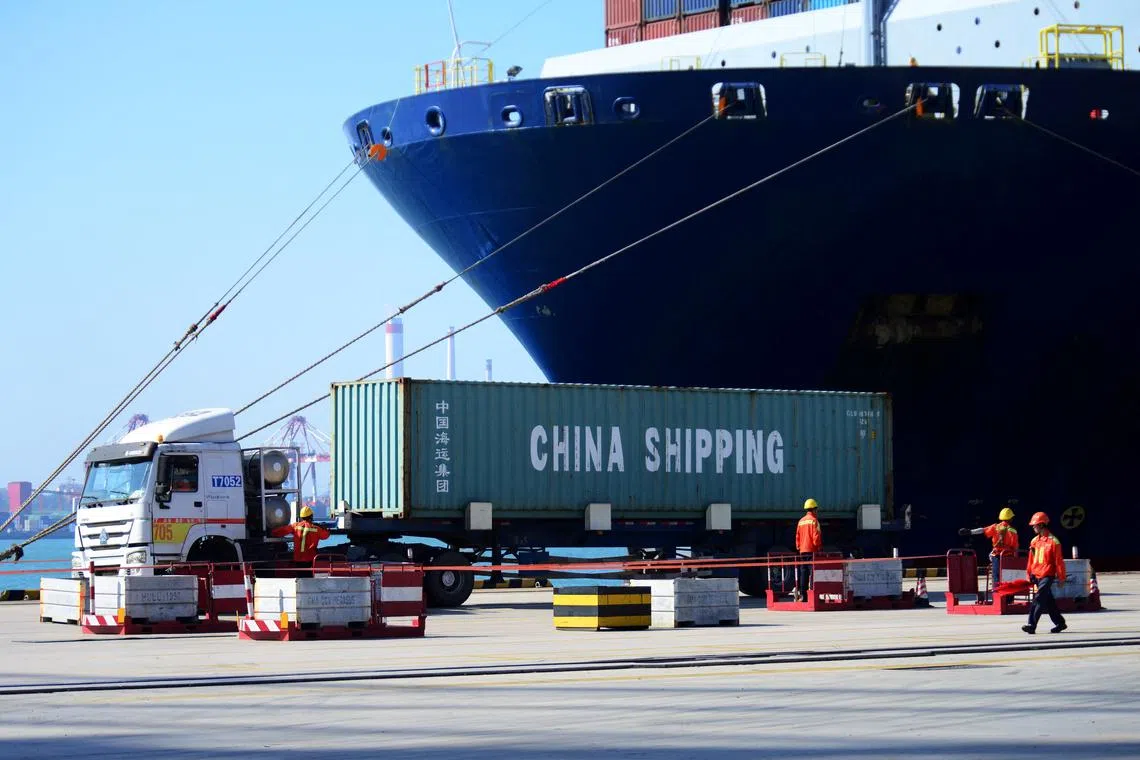US unions call for probe into ‘unfair’ Chinese practices in shipbuilding sector
Sign up now: Get ST's newsletters delivered to your inbox

China’s intervention threatens to “discriminate against US ships and shipping companies… and undermine vital national security interests”, the petition said.
PHOTO: REUTERS
WASHINGTON – Five US unions filed a petition on March 12 calling for an investigation into what they say are unfair Chinese practices in the shipbuilding and maritime logistics sectors.
The petition, filed before the United States Trade Representative (USTR), urged that action be taken to address “unreasonable and discriminatory” policies and practices by Beijing to dominate these industries, impacting US commerce.
The unions include the United Steelworkers, International Association of Machinists and Aerospace Workers, and International Brotherhood of Boilermakers.
Concern around the US steel industry has made political headlines in the run-up to the presidential election in 2024 – with a proposed deal that would see US Steel Corp bought by Japan’s Nippon Steel receiving close scrutiny.
In confirming that the latest petition has been received, US Trade Representative Katherine Tai said on March 12 that China has created “dependencies and vulnerabilities in multiple sectors” such as steel, aluminium, solar and critical minerals.
This has brought risks for US supply chains, Ms Tai added in a statement.
In the petition, the unions said the US commercial shipbuilding sector is “a shell of its former self”. Meanwhile, China has sought to emerge at the top of the industry with allegedly “non-market policies”.
China’s intervention, the document said, has kept a lid on prices and created a network of infrastructure that threatens to “discriminate against US ships and shipping companies, disrupt supply chains and undermine vital national security interests”.
In a separate statement, Alliance for American Manufacturing president Scott Paul urged US President Joe Biden to “act now to level the playing field for our shipbuilders”.
The USTR will have 45 days to determine if it is starting an investigation.
Section 301 of the Trade Act, the unions argued, provides an avenue to address Beijing’s policies, given that it allows the USTR to impose tariffs, fees or other restrictions.
The section enables Washington to respond to unreasonable or discriminatory foreign government practices weighing on US commerce.
Section 301 was also used by former president Donald Trump in justifying tariffs he imposed on Chinese imports, during the trade war with China from 2018. Officials are currently undertaking a four-year review of those tariffs. AFP


